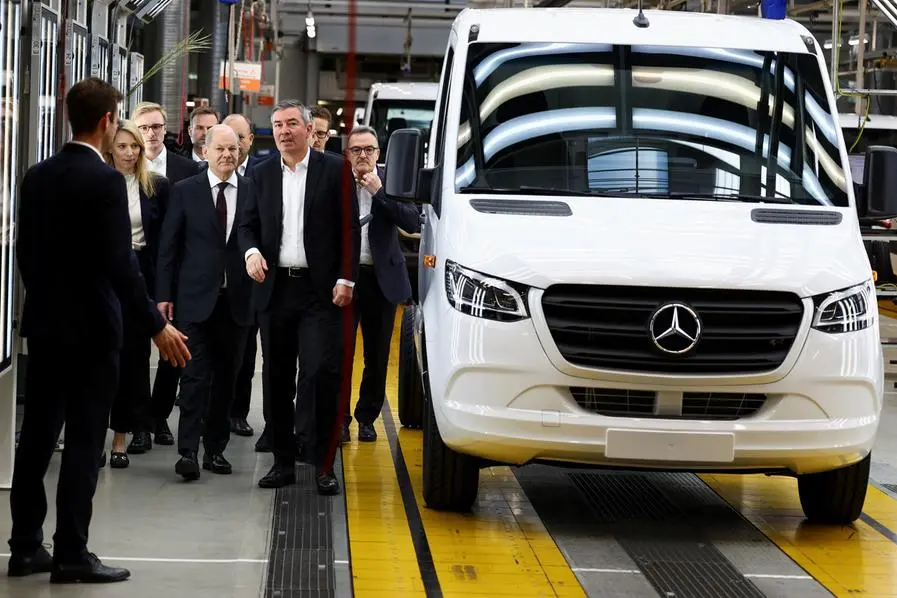PHOTO
LONDON - Mercedes-Benz's van unit said on Tuesday that it plans a new, scalable platform for its electric vans that will reduce fixed costs by 20% by the middle of the decade and that electric models should make up 50% of its van sales by 2030.
Electric vans should make up 20% of sales by 2026, Mercedes' van unit said, adding it expects double-digit margins on zero-emission model sales by the end of the decade.
All new midsize and large van models will be based on what Mercedes described as an "innovative, modular and scalable electric architecture" called VAN.EA.
Legacy automakers got off to a late start with their commercial electric vans, opening the door for other electric commercial vehicle (ECV) makers to gain a foothold, such as the Maxus brand from China's SAIC Motor Corp has done in Europe.
Customer demand for electric vans has taken off and is expected to outstrip supply for some years to come.
Mercedes said it sees "significant growth potential" in the United States for premium commercial large vans and in China for luxury private vans.
The company expects direct online sales to exceed 20% by 2026. In Europe, which accounts for 60% of the van unit's sales, the company expects more than 75% of sales to be online by then.
Mercedes said it intends to reduce fixed costs primarily through "streamlining and digitalising processes," targeting a 20% cut by the middle of the decade compared to 2019.
(Reporting By Nick Carey; Editing by Bernadette Baum)





















